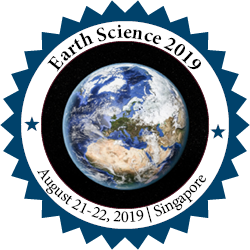
Isaac Madueke Nwaedozie
Deputy Director
National Office for Technology Acquisition and Promotion
Nigeria
Biography
Dr I.M. Nwaedozie has completed his Ph.D at the age of 54 years from Abubarka Tafawa Balewa University (ATBU), Nigeria and a Deputy Director and Special Assistant to the Director General/CEO of National Office for Technology Accquisition and Promotion (NOTAP), a Government Technology Regulatory Organisation. He as made presentations in morethan 20 national and international conferences /workshop and made four (4) publications in reputed international journals
Research Interest
Heavy Metal (HM) is defined as any relatively dense metal or metalloids noted for its potential toxicity in the environment. Most of these metals appear in the World Health Organization list of chemicals of public health concern. Long-term exposure to HMs have been linked to slowly progressing physical, muscular and neurological degenerative processes in human that mimic Alzheimer's disease, Parkinson's disease, muscular dystrophy, multiple sclerosis, liver and kidney failures as well as alterations in gene expressions. This study assessed the concentration of some HM in public water supply in Abuja Metropolis from 2015 to 2016 with the view to determining its overall percentage compliance with the WHO(2008) recommended limits for safe drinking water. The HMs includes aluminum, Iron, Copper, Zinc and Manganese. A representative water samples from the six locations within the study area were collected and analyzed according to the Standard Methods and Procedures. Sampling was conducted three (3) times in each month from which the annual mean values were obtained and analyzed statistically. The mean physico-chemical characteristics of public water supply within the period under review revealed Al(0.61±0.13mg/l),Fe(0.21±0.06mg/l),Cu(0.02±0.003mg/l),Zn(0.24±0.10mg/l),Cu(0.05±0.03mg/l).Overall average percentage compliance were found to be Al(45.60%, Fe(85%), Cu(84.20%),Zn(90%) & Mn(91%) respectively. The results within the study period revealed that aluminum appeared to be above the WHO recommended limit of 0.20mg/l for safe drinking water and recommended for a substitute of aluminum sulphate used as coagulant in the water treatment process. The study concluded that the selected heavy metals and its concentrations in the public water supply in Abuja Metropolis was in compliance with the WHO quality for safe drinking water and therefore safe for human consumption .However, concern is raised for its aluminum level and possible health implications on long-term exposure particularly amongst the aged.

